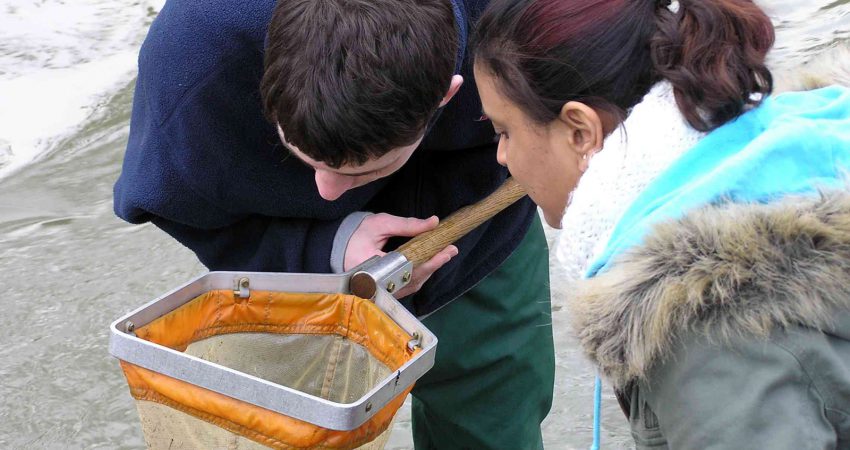
By Nicole Bulalacao - December 2014
PAPER CITATION
Calabrese Barton, A., & Yang, K. (2000). “The culture of power and science education: Learning from Miguel.” Journal of Research in Science Teaching, 37(8), 871–889.
Calabrese Barton and Yang describe how a young person’s strong interest in science (specifically reptiles) outside of school went unrecognized by his schoolteachers and by his family as an aptitude for science. The authors describe how the prevailing view of science, framed in the context of the culture of power, can narrow learners’ perceived opportunities to pursue academic or professional pathways in science.
Research Design
Calabrese Barton and Yang describe the case of “Miguel,” a 26-year old Puerto Rican American man who grew up in a Hispanic urban neighborhood and, at the time of the case study, lived in a shelter with his wife and children. The researchers detail how Miguel’s interactions with school and school science limited his views of and opportunities in science. This case was part of a larger ethnographic study of homeless families and science education (Calabrese Barton, 1998).
Research Findings
The paper identifies missed opportunities in Miguel’s learning trajectory across settings—home, school, and work—where he was dissuaded from pursuing science. For example, Miguel’s high school focused on preparing its largely Hispanic and black student population for the workforce rather than post-secondary education. Consequently, Miguel was guided into a vocational track, rather than being encouraged to pursue college preparatory courses.
Out of school, Miguel articulated how the Puerto Rican American community valued street credibility more than success in school. Miguel expressed that school was valued as a social space and that both his family and his school neglected to emphasize school as a place for professional or academic development. This set of values led to Miguel’s complex understanding of the divide between, on the one hand, Miguel’s identity and lack of educational opportunities as a Puerto Rican American and, on the other, the identities and opportunities of Americans associated with the culture of power.
This understanding was evidenced in Miguel’s own child-rearing practices: He preferred to enroll his own children in schools run by “whites.” Miguel recognized that, although he may not have been afforded academic or career opportunities in his school, his children could have more such opportunities in schools aligned with the culture of power.
In his professional life, Miguel owned a black market business handling and selling amphibians. Although Miguel’s passion was clearly related to science, he did not recognize his work as “scientific.” For example, Miguel spoke of science as something learned in books and of scientists as “special” people who rarely come from “the ‘hood.” Miguel did not recognize his business as scientific because what he was doing and where he was doing it—taking care of amphibians in his home—did not fit the form of science he was taught at school.
Theoretical Basis
Calabrese Barton and Yang integrate sociocultural theory with Delpit’s (1988) concept of the culture of power. They define the culture of power as:
a set of values, beliefs, and ways of acting and being that for sociopolitical reasons, unfairly and unevenly elevate groups of people—mostly white, upper and middle class, male, and heterosexual—to positions where they have more control over money, people, and societal values than their non-culture-of-power peers. (p. 873)
Calabrese Barton and Yang argue that the culture of power, which is prevalent in many spaces including science education, operates with unspoken rules. Counter to the prevalent notion that science is objective, they argue that the production of science, its shape, and its pedagogies are guided almost exclusively by those in power.
However, this view, the authors argue, is seldom represented in the classroom. For example, in science classrooms, teachers often promote the technical language of science over recognizing scientific practices that use conversational language. Furthermore, curricula often emphasize scientific concepts and facts over inquiry processes and youths’ knowledge from other contexts. This de-contextualized presentation of science can alienate students who speak a language other than English or who have another scientific way of knowing.
This “objective” notion of science, paired with the issue of which people have historically been privileged to shape science, has led to a limited view of what science is—a canonized set of facts practiced only in laboratories and schools and who can practice science. Over time this view has tended to separate some learners, like Miguel, from identifying with science.
Implications for Practice
The findings from this study suggest that science educators might make the rules of power explicit in order to:
- Raise practitioners’ awareness of how the culture of power may be reproduced and enacted in their classrooms. This awareness may help practitioners structure environments to engage learners who feel “out of place” in science and to make room for broader ideas about what it means to create knowledge.
- Contextualize science by showing which people have historically been allowed to shape it. This context could show students that science is malleable and has been shaped and re-shaped by many people over time.
- Highlight the many places and activities, in and out of school, where science can be found. Then practitioners can connect these experiences to other experiences in youths’ lives across settings by, for example, recognizing a garden as a laboratory or highlighting the scientific practices in pet care. Bridging school and out-of-school spaces can broaden students’ perceptions of what science is and who can do it.
References
Calabrese Barton, A. (1998). Science education and the politics of poverty. Educational Policy 12(5) 525–541.
Delpit, L. D. (1988). The silenced dialogue: Power and pedagogy in educating other people’s children. Harvard Educational Review, 58(3), 280–298.




